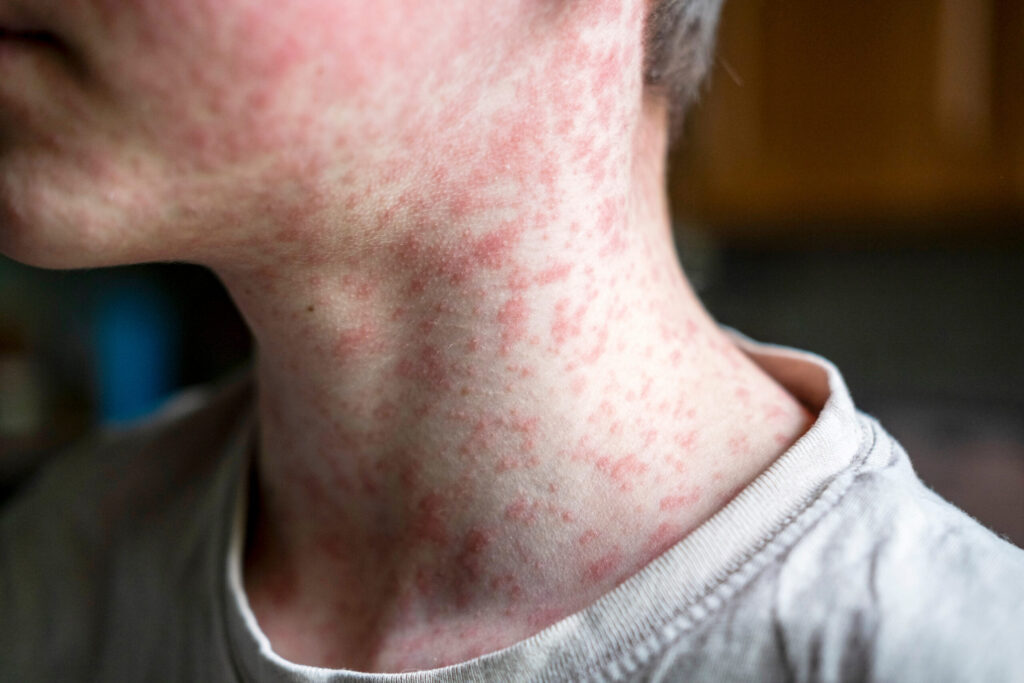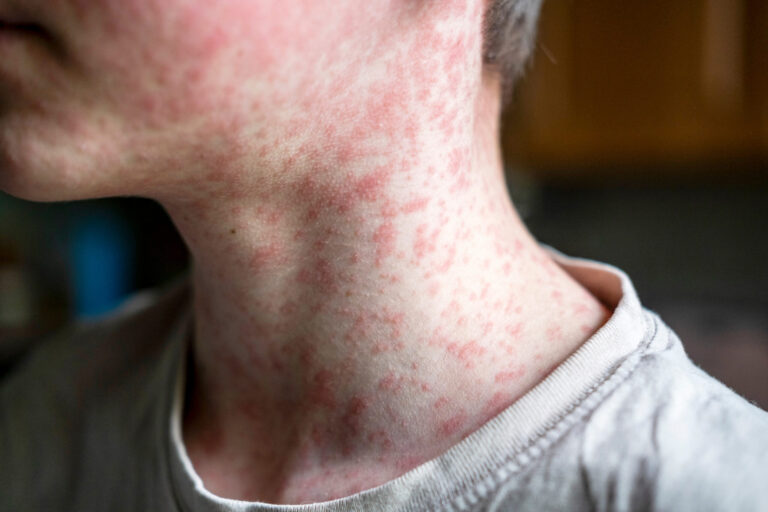Measles: A Serious Contagious Viral Disease
Measles is a highly contagious viral disease that primarily affects children but can also impact non-immunized adults. Although measles has nearly disappeared in many countries thanks to vaccination, it remains a major public health concern in certain parts of the world.
What is Measles?
Measles is a viral infection that usually manifests with a characteristic rash, respiratory symptoms, and a high fever. Measles is extremely contagious, far more than many other viral infections, making outbreaks common in unvaccinated communities.
How Does Measles Spread?
The measles virus is transmitted through the air via respiratory droplets released when an infected person coughs or sneezes. The virus can also spread through direct contact with contaminated objects.
An infected person is contagious from four days before the rash appears to four days after its onset.
Measles is so contagious that if a person is not immune (through vaccination or prior infection), they have a 90% chance of contracting the disease upon contact with the virus. This makes measles a serious threat in environments with insufficient vaccination coverage.
Measles Symptoms
The initial symptoms of measles typically appear between 10 and 14 days after exposure to the virus. They often include: High fever, dry cough, runny nose, red, light-sensitive eyes (conjunctivitis), muscle aches, small white spots inside the mouth.
A few days later, a rash begins on the face and gradually spreads downward across the body. The rash consists of small red spots that may merge to form larger patches.
Measles Complications
Although most people recover from measles without major complications, the disease can cause serious health issues, especially in young children, older adults, and individuals with weakened immune systems. Common complications include:
- Pneumonia: A lung infection that is one of the most common complications of measles and can be life-threatening if not treated promptly.
- Encephalitis: Brain inflammation that can lead to long-term neurological damage or even death.
- Otitis media: An ear infection that may result in hearing loss.
- Dehydration: Associated with severe episodes of diarrhea.
Vaccination: Your Best Protection
The most effective way to prevent measles is through vaccination. The MMR vaccine (measles, mumps, rubella) is the most effective tool for measles prevention. In Quebec, according to the Protocole du2019immunisation du Quu00e9bec (PIQ), children are vaccinated at 12 months of age, with a booster shot between 16 and 18 months.
In some cases, an additional booster is recommended for adults, depending on specific situations as outlined in the PIQ. If you are unsure of your vaccination status, our healthcare professionals can guide you in determining whether a vaccine is necessary.
Thanks to vaccination, measles has been nearly eradicated in many regions. However, outbreaks continue to occur in areas with low vaccination rates, often due to vaccine misinformation and anti-vaccine movements. As of January 2025, 11 cases of measles have been confirmed by public health authorities in Quebec.
https://www.quebec.ca/en/health/health-issues/a-z/measles/measles-outbreak
A Simple Step for Lasting Protection
By getting vaccinated or checking your immunization status, you help protect the most vulnerable individuals, such as infants, older adults, and those with weakened immune systems.
Preventing measles means safeguarding public health and avoiding serious complications.
Together, Letu2019s Stay Vigilant!
Measles is a preventable disease, but it requires constant vigilance. If you have questions about vaccination or preventive measures, our team is here to support and guide you.




